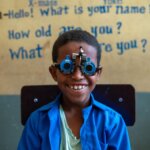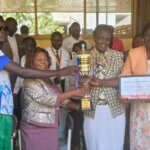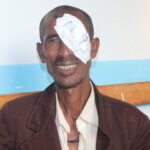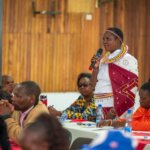- News Wrap
- Disability Rights
- Eye Health
- General
July 2025 News Wrap — our work, successes and impact.
Nearly 500 students and teachers in Tigray, Ethiopia, have received pairs of spectacles to boost their learning through better vision.
As part of the “1, 2, 3 I can see!” school eye health programme, Light for the World and Tigray Regional Health and Education Bureaus distributed 487 spectacles to students and teachers across 30 schools.
Kedir Mohammed (pictured above), a student from Axum, received glasses after struggling to read the chalkboard. He has repeated the first grade three times due to his eye condition — but now feels confident about the future.
“I like playing with my friends and I love football,” he says. “After they gave us spectacles, I can see.”
Skilled-up graduates set for fulfilling work

Sixty-nine young people with disabilities have taken the next step towards fulfilling work after completing a five-week, transformational training in key life skills.
Light for the World has concluded the third cohort of core life skills training — held under the We Can Work programme — for young people across Nairobi and Makueni Counties in Kenya.
After graduating from the We Can Work academy, the young people have gained crucial career and life skills, in areas including self-awareness, advocacy, and goal setting. The training helps them prepare for their next steps in employment entrepreneurship or further training.
“Through We Can Work, I have expanded my knowledge. I’ve accepted myself, learned to advocate for my rights, and realised that my disability shouldn’t limit me. I know I am strong and I can do it,” Felista, one of the graduates, says.
Francis, another graduate, says: “I never thought I could make this dream a reality. My dream was to have a bakery and be my own boss. Now I believe I can. I have the confidence to speak up for myself, pursue my goals, and create jobs for people like me.”
Showcasing our impact in 2024
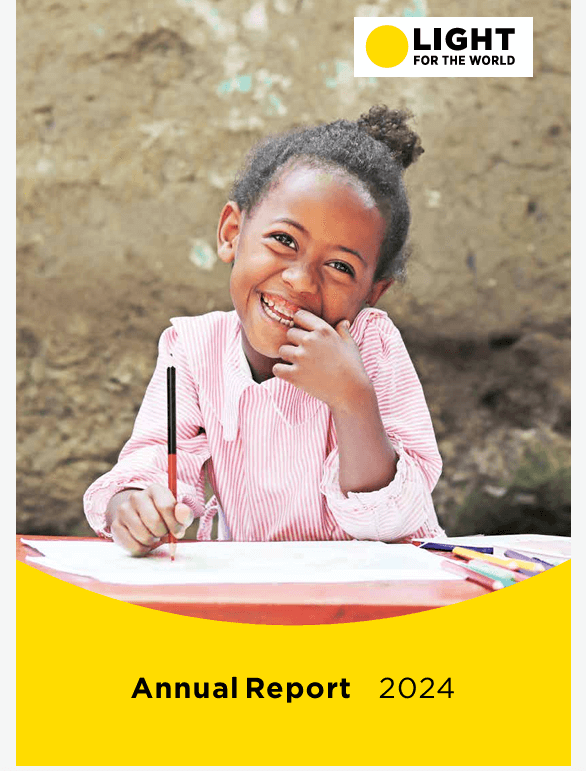
We have released our annual report — demonstrating how we are sparking positive, long-lasting change in the communities we work alongside.
The 2024 report details how Light for the World, working with our trusted partners:
- Reached 1.45 million people with support in eye health and disability inclusion
- Delivered more than 10 million doses of medication against diseases like blinding trachoma
- Supported more than 40,000 people with disabilities to find work and start businesses
We also launched our new Strategy 2030, reaffirming our commitment to deliver sustainable impact in disability rights and inclusive eye health.
Read the report to find out more about our impact in 2024.
National survey to track eye health progress in Ethiopia
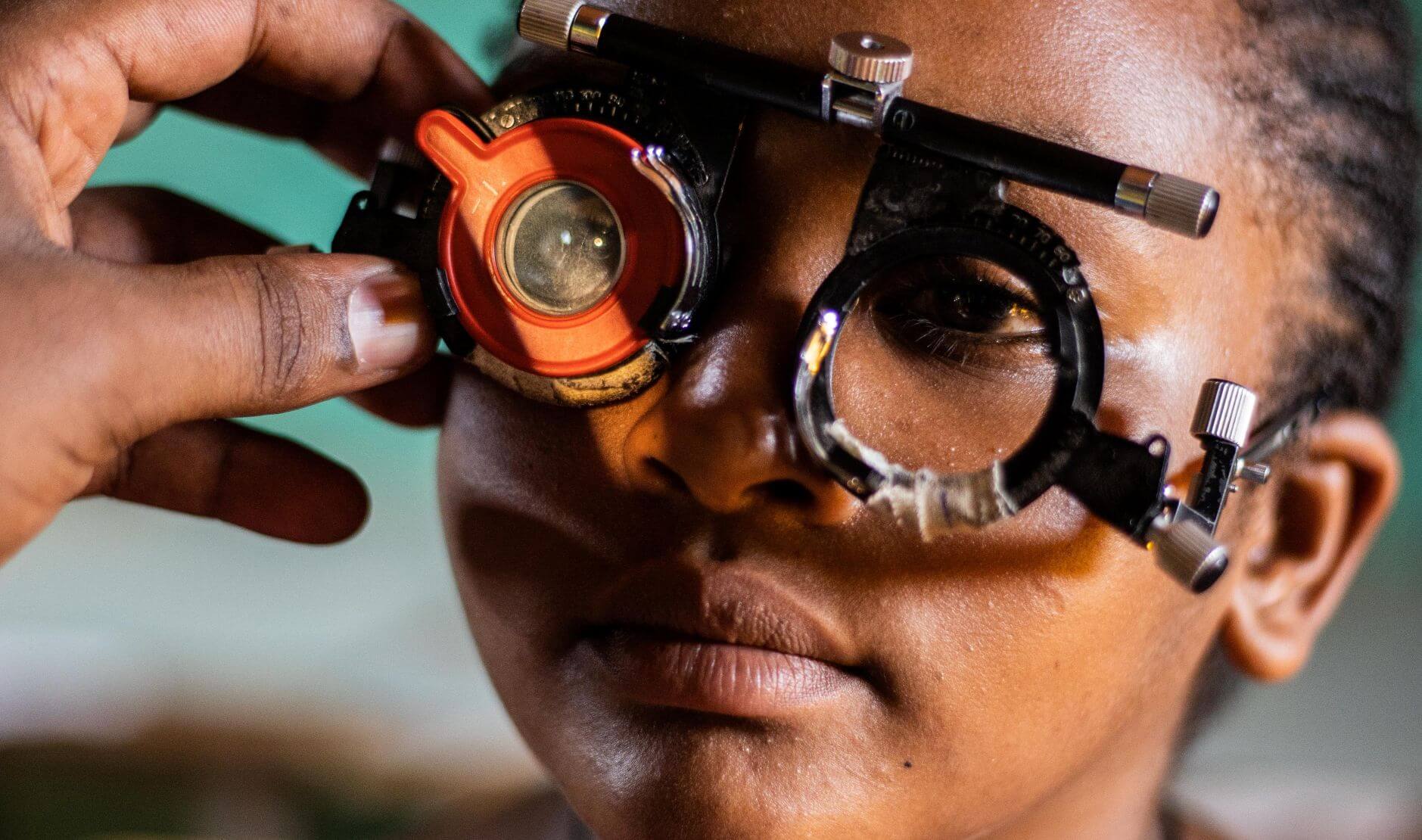
Light for the World, the Ethiopia Ministry of Health and other key stakeholders have finalised the protocol for Ethiopia’s Second National Eye Health Survey.
The survey is crucial to track progress and address gaps in eye health care in Ethiopia following the first survey, in 2006.
“We are proud to stand alongside the Ministry of Health and our partners as Ethiopia takes this critical step toward evidence-based eye health planning,” Suadik Hassen, Interim Country Director at Light for the World Ethiopia, said in a keynote address.
“Light for the World remains committed to supporting the successful completion of the Second National Eye Health Survey, and we will be on the ground every step of the way.”
Entrepreneurs share inclusive tips for success
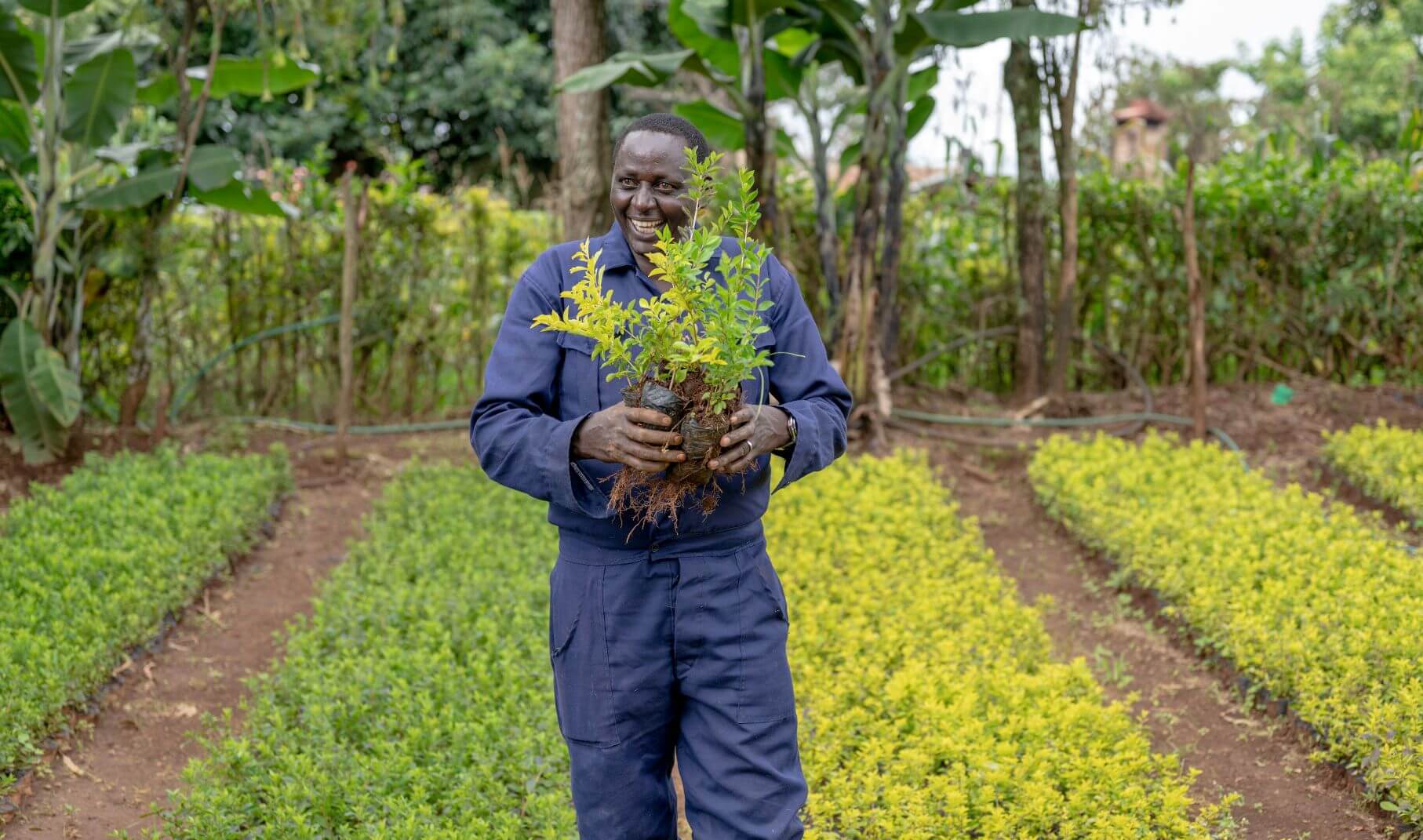
Kenyan micro-entrepreneurs with disabilities have shared their top tips on turning a business idea into a reality for our latest insights article.
They include Hilton Nyambua, who runs a business selling soaps and detergents in Buruburu, Nairobi.
“The top tip I can give to entrepreneurs with disabilities is to do their research first, before venturing into business … because without research, you can end up starting something and it becomes a failure,” he says.
The article also features additional insights for budding entrepreneurs from Faustina Ning’a Cikanda, Senior Expert in Economic Empowerment at Light for the World.
Read all the tips here or watch the recommendations from Hilton and Anthony Maina (below).
International media profile Burkina Faso child eye health specialist

Associated Press (AP) reported — in an article and video — on Dr Claudette Yaméogo, Burkina Faso’s only paediatric ophthalmologist.
Dr Yaméogo received a scholarship to specialise in child eye health from Light for the World, under the “1, 2, 3 I can see!” programme. In the article, she explains the challenges of leading efforts to treat and prevent childhood eye disease and blindness across the country.
Dr Yaméogo’s story is a reminder of how targeted investment in local experts can help transform health systems.
The story was republished by other international media, including The Independent.
